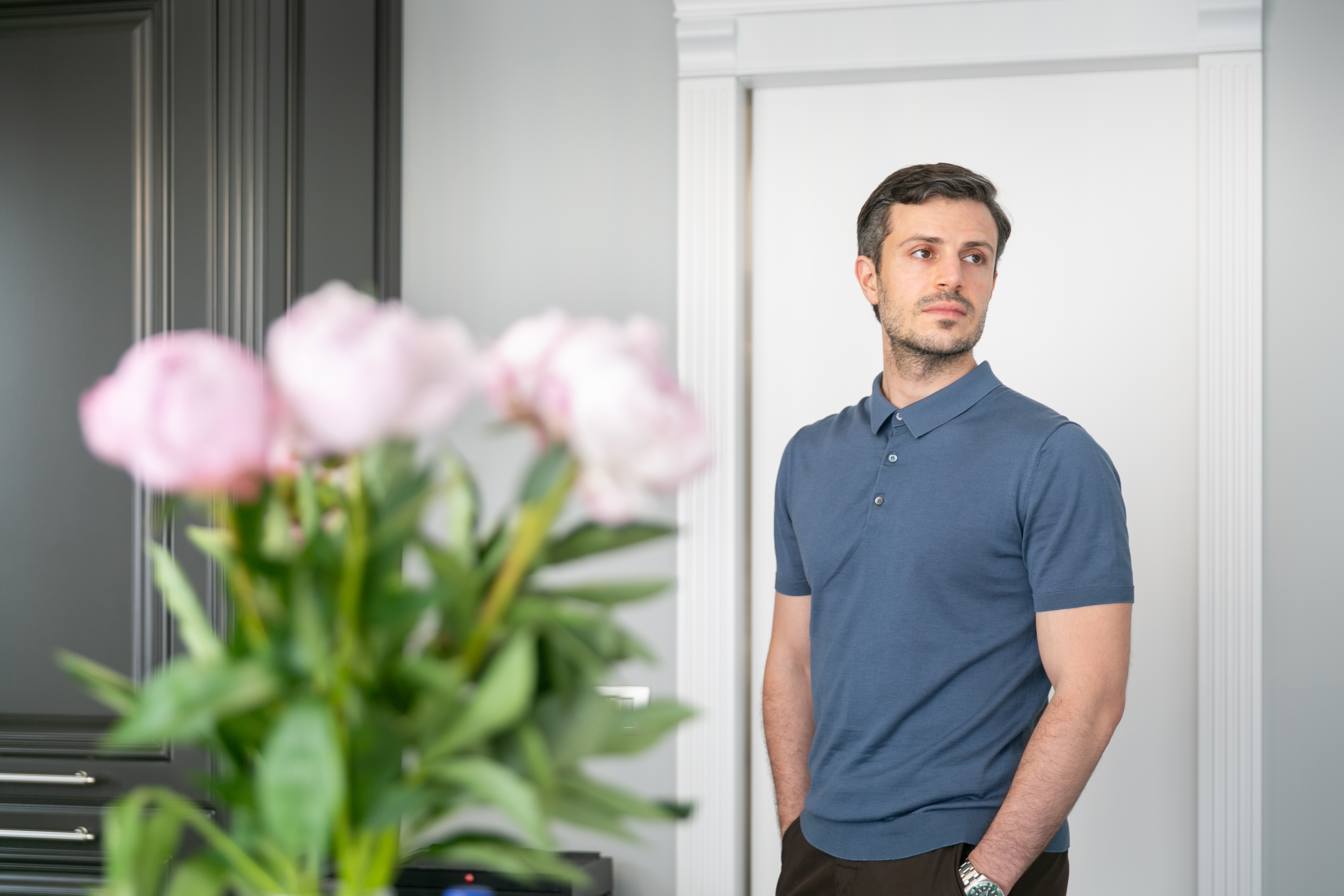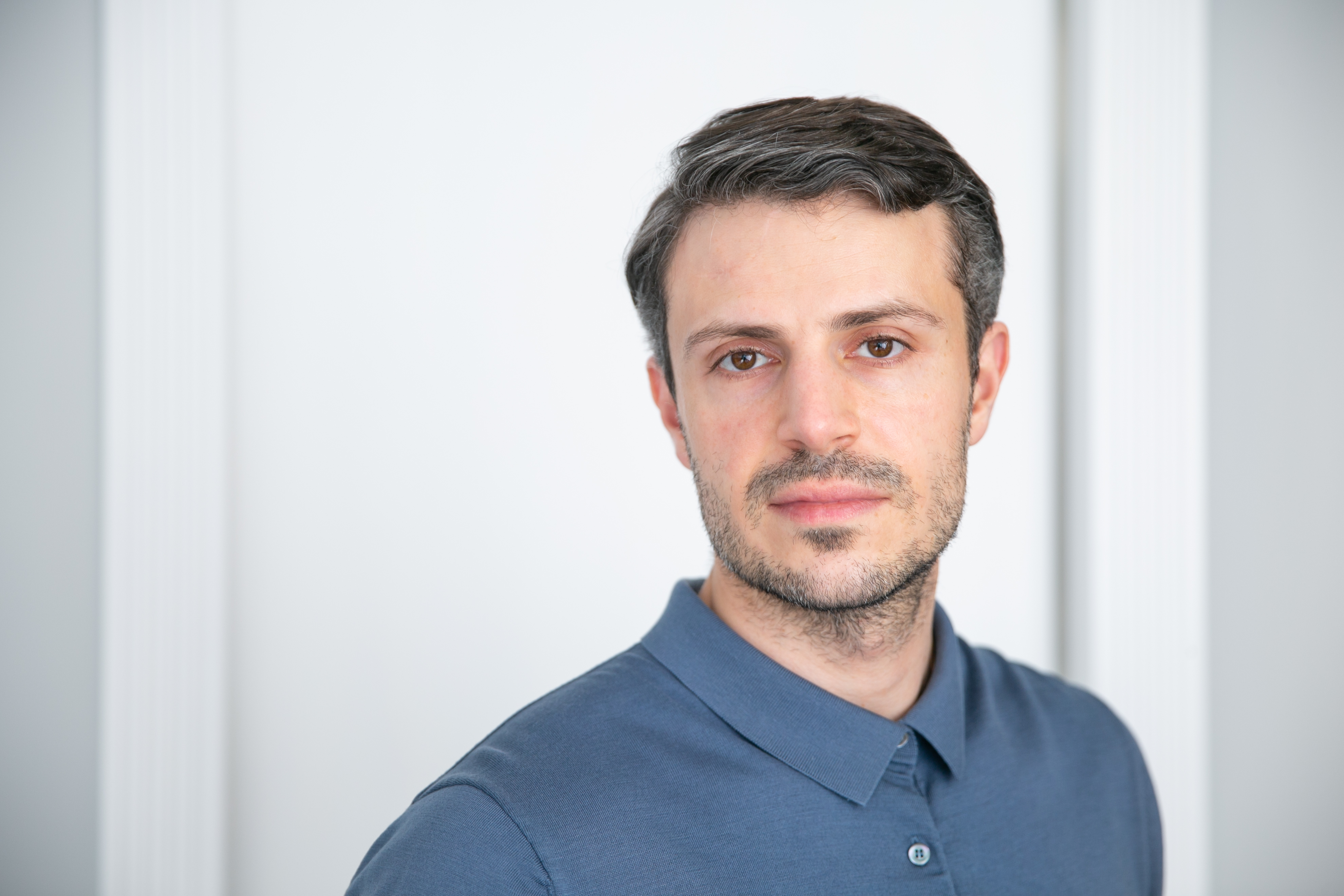"Multinational employers do look at Education section on a resume"

What was your motive for enrolling in HSE and ICEF? What was it that attracted you?
My first encounter with HSE took place when I was a school student. I took interest in Economics and decided to do a pre-enrolment course at HSE, which helped me win a prize in an entrepreneurship and consumer knowledge olympiad and, later, maximum possible score in Economics admission exam (which, as I found out later, actually earned me the place in the programme). I passed the rest of the tests and got enrolled in HSE Faculty of Economics.
As a second-year student, I took interest in applied courses, one being Corporate Economy and Finance. In my fourth year, shortly before I was due to graduate, ICEF launched its Master of Financial Economics programme and I didn’t hesitate to enroll. I’ve always liked ICEF and felt a bit sorry I didn’t choose it for my bachelor’s years. Joining it as a master’s student seemed to be a logical choice, I thought at the time. I expected ICEF to give me a wider picture of the financial instruments I knew I would need in my future job.
My first year was not at all easy, to be honest. ICEF’s solidly scholastic courses seemed a better fit for my classmates than for me. Most of them had technical background and some – degrees from Moscow Institute of Physics and Technology. I can’t say the courses had a lot to do with practice actually, but they had been a good experience as giving skills for absorbing information one is absolutely new to. Those skills did come very much in handy in my future jobs. While studying, I received a job offer from UBS, which was another good experience – of getting immersed in practice at a completely different level.
What was you experience of juggling master’s studies and work at UBS? How do employers treat student workers, especially those pursuing academically-oriented degrees?
I don’t think master’s studies can be juggled with work successfully. I opted to complete my studies first before starting a full-time job. Multinational employers do look at Education section on a resume. When mine was reviewed by UBS, I was just entering the labor market and had no professional experience yet. And USB was quite particular about where I studied, what sort of training I received, what my English level was, what hands-on courses I had covered and what I could bring to the company. I believe I was greatly benefited by both the HSE Faculty of Economics and the ICEF Master's Programme as I had a tangible advantage over all other candidates, at least in terms of English and Corporate Finance skills. Given that the job involved working in London and Moscow, my experience as a double degree student had proved useful not only formally, but also practically — it gave the understanding of the global processes and how communication works from an intercultural perspective.
Many Russian students are looking at schools, and among them ICEF, with international economic degrees they could do in Russia. What do you think are the benefits of international education?
The first thing to be mentioned is access to a community of academics and students with diverse background from a variety of schools worldwide. You find yourself immersed in a different milieu with its own rules and values to be adjusted to, and this may prove a very useful experience. The people you compete for jobs abroad are native speakers who normally have done some solid internships, which means you’d have to work twice as hard to be equal in order to stand out and increase your chance of being noticed by employer. Russian students who are doing international degrees in Russia benefit from the environment where instruction is delivered in a foreign language, where academic standards are much higher than expected, and where there is choice of internships and summer school courses to be taken abroad.
What was your motive for enrolling in HSE and ICEF? What was it that attracted you?
My first encounter with HSE took place when I was a school student. I took interest in Economics and decided to do a pre-enrolment course at HSE, which helped me win a prize in an entrepreneurship and consumer knowledge olympiad and, later, maximum possible score in Economics admission exam (which, as I found out later, actually earned me the place in the programme). I passed the rest of the tests and got enrolled in HSE Faculty of Economics.

As a second-year student, I took interest in applied courses, one being Corporate Economy and Finance. In my fourth year, shortly before I was due to graduate, ICEF launched its Master of Financial Economics programme and I didn’t hesitate to enroll. I’ve always liked ICEF and felt a bit sorry I didn’t choose it for my bachelor’s years. Joining it as a master’s student seemed to be a logical choice, I thought at the time. I expected ICEF to give me a wider picture of the financial instruments I knew I would need in my future job.
My first year was not at all easy, to be honest. ICEF’s solidly scholastic courses seemed a better fit for my classmates than for me. Most of them had technical background and some – degrees from Moscow Institute of Physics and Technology. I can’t say the courses had a lot to do with practice actually, but they had been a good experience as giving skills for absorbing information one is absolutely new to. Those skills did come very much in handy in my future jobs. While studying, I received a job offer from UBS, which was another good experience – of getting immersed in practice at a completely different level.
What was you experience of juggling master’s studies and work at UBS? How do employers treat student workers, especially those pursuing academically-oriented degrees?
I don’t think master’s studies can be juggled with work successfully. I opted to complete my studies first before starting a full-time job. Multinational employers do look at Education section on a resume. When mine was reviewed by UBS, I was just entering the labor market and had no professional experience yet. And USB was quite particular about where I studied, what sort of training I received, what my English level was, what hands-on courses I had covered and what I could bring to the company. I believe I was greatly benefited by both the HSE Faculty of Economics and the ICEF Master's Programme as I had a tangible advantage over all other candidates, at least in terms of English and Corporate Finance skills. Given that the job involved working in London and Moscow, my experience as a double degree student had proved useful not only formally, but also practically — it gave the understanding of the global processes and how communication works from an intercultural perspective.
Many Russian students are looking at schools, and among them ICEF, with international economic degrees they could do in Russia. What do you think are the benefits of international education?
The first thing to be mentioned is access to a community of academics and students with diverse background from a variety of schools worldwide. You find yourself immersed in a different milieu with its own rules and values to be adjusted to, and this may prove a very useful experience. The people you compete for jobs abroad are native speakers who normally have done some solid internships, which means you’d have to work twice as hard to be equal in order to stand out and increase your chance of being noticed by employer. Russian students who are doing international degrees in Russia benefit from the environment where instruction is delivered in a foreign language, where academic standards are much higher than expected, and where there is choice of internships and summer school courses to be taken abroad.
International environment is where one’s communication skills and mindset grow into a cardinally new level. People from such environment are always pleasant to deal with both as business partners and interlocutors. It is no secret that investment banks and private equity funds have particularly aggressive corporate cultures, where climbing a career ladder can be truly challenging.
And because there’re so many opportunities for growth, you find yourself surrounded by careerists that are all too hungry for success
I therefore recommend skills such as self-presentation, communication and constructive criticism be started to be worked on as early as possible in student years, when levels of stress are moderate and skills can be acquired faster.
Why is IB viewed as an aggressive industry?
I think because it poses task performers to tight deadlines and there is cut-through competition among banks. When a product is to be gained fast and in high-quality manner, one has to stay in contact with their senior colleagues so that changes to the material could be made promptly. Within the investment funds, it is the quality and profitability of projects that come first. A promising project may attract multiple funds. To win them, conditions should be offered that are both lucrative and inspiring the thinking that the project will be a value add for the investor both short-term and long-term.
From a competition perspective, the IB industry as an industry with fierce competition and ‘win at all costs’ motto, does alter one’s perception of the interaction patterns. It is natural to suggest that people who succeed in IB are the type who’s able to sustain, psychologically and physically, the pressure that comes from the huge amount of work and the stress levels it entails. You just can’t compete if you don’t fit this definition. And once you switch from IB to a cozier environment, you realize how strong you have become from racing for results.
What motivated you to join investment industry?
I was thinking about different employment options as a student to finally arrive at three criteria that comprise my definition of a good fit. They are challenge, career opportunities and good benefits package. My job search was guided by exactly these criteria. There are, of course, many other industries that offer challenge, but most of them seem tedious to me because they keep you stuck in the same place with the same compensation package for years, unfortunately, draining you and leading to frustration. The investment business, too, involves a hefty amount of routine, but once you’ve brought yourself to the next level – through a chain of successfully completed projects – you face the tasks that bring about new skills and knowledge. Together with growth opportunities, the motivating effect of deadlines keeps you on the go despite the pressure and having to put in long hours. This creates a special work-life balance that makes you want to progress further.: Михаил Дмитриев
So how does previous experience in IB benefit its holder?
It depends on the industry job-seeker is applying. If it’s within IB, it’s brands that he or she has been with that employers will be interested to find out first at the initial screening phase, their track record and achievements. Then, during the interview, the candidate needs to be able to provide a convincing description of the earlier investments projects they were involved in by giving details of their tasks and responsibilities. It’s very important in IB to be a good team worker, while at the same time focusing on the specific tasks for which you are responsible. If we are talking about a total change of occupational sector, the previous experience in IB is proof of candidate’s being hard-working, emotionally secure and able to handle deadlines.

What do you think helped you to get your career started and what standards are finance career seekers are expected to live up to?
A reputable diploma, to begin with. It helps you to get invited to an interview. Secondly, the high level of knowledge that your university equipped you with. It helps you pass the interview. What happens next, however, will have very little to do with what you’ve learned before. Looking back on my first months in the job, I remember having difficulty understanding the task before me: I simply lacked the knowledge of the ins and outs of the domain I was dealing with. My academic endurance came to rescue many times when I was to spend hours exploring, say, metallurgical industry and how it worked before I was able to build a decent financial model, prepare a teaser, a presentation, a memorandum, etc.ото: Михаил Дмитриев
What distinguishes the HSE students is the experience they gain from their competitive environment and rating system. Every tiny detail within HSE’s system aims to make students want to perform better, which is a great asset for an investment banking career seeker.
What skills, in your experience, have proved most beneficial for career growth?
Going back to when I was competing for the job at UBS, screened to the final stage were students of ICEF and MGIMO. I must say the ICEF students beat the MGIMO ones in soft skills – the skills that pave the way forward for international careers. The reason is not only English as the language of instruction, nor the international teaching staff. It’s the teaching style the HSE is using that instills in students hard and soft skills at a time and comes as a great asset for their future.
Modern universities usually know how to use discussions led by their faculty staff or best-performing students to nurture confidence and self-esteem, while leading to greater respect of other people’s stances and improved persuasion skills.
HSE students set themselves apart by being assertively audacious and willing to challenge key opinion leaders in a good way
All this makes students good at demonstrating their knowledge. There are useful career services at HSE, and ICEF particularly, that help fine-tune one’s soft skills. So, when it comes to interview offers from investment banks, HSE students stand a much greater chance of getting them than their tech-savvy peers.
And by audacious you mean they act as if there were no barriers to achieving what they want?
Exactly. As a bachelor’s student, I worked on a research project supervised by Mark Levin, Chair of HSE Department of Microeconomics and a person with unrivalled expertise as he came across to me. He appeared to be an absolutely friendly supervisor, and my paper titled “The Economics of Terrorism” won a prize from in-house student research competition. Also, there were many fresh PhD graduates among the faculty members, about the same age as us, students, so we felt quite at ease discussing a variety of issues that spanned also their personal research experience. My class was ICEF master's programme’s first one. Many of us chose of enroll in PhD programmes and the unique experience they received at ICEF has surely helped many to find the right careers.
The Russian Direct Investment Fund, at what stage did it appear in your life? How high are the standards that RDIF sets for its employees?
My experience at UBS investment bank had prompted the idea of moving to the buy-side, so I grasped at the opportunity when RDIF was set up. I chose a couple of concrete deals I was personally involved in and my interviewers were aware of, to pitch myself, that worked well for me. Some job candidates put on their resumes transactions they’ve had only indirect relation to, with no actual experience gained. Experience is measured by direct participation and is revealed through answers to the questions. Interviewees’ having been merely copied in on emails is not an indication of experience. My advice to future job-seekers: walk yourself through your resume before you go to an interview. Think about the questions your interviewer may want ask you to find out more of your professional experience.
How are relations between Western investors and Russian companies evolving today? What do foreign investors invest in?
The pandemic and its aftermath are definitely taking their toll on the investment climate, national economy and corporate performance. Still, foreign investors continue looking for lucrative, and in case of Russia even super profitable, projects. A number of industries have seen a rapid growth amid the pandemic and among them online television, one example being the ivi.ru project we invested in last year and have re-invested recently. Its monthly audience of daily active users has risen during the pandemic to over 60 million and the paying audience by 50%. Now that people spend more time at home watching TV, to the foreground comes the quality and easy access to content and that’s exactly what ivi offers.

Another focus is on pharma industry. RDIF didn’t hesitate to invest in three segments of combating the COVID-19 outbreak – tests, drugs and vaccines – and received some very good response. We are very satisfied with these investments and can safely say they have generated social returns. RDIF seeks not only to profit but also to help its country, its portfolio companies and the economy in general to get back to normal. And we also invested in Yandex, which stands as one of the major pandemic beneficiaries and has markedly improved its online services, demonstrating solid operational performance and an excellent growth in shareholder value.
How do you spot the companies that might be interested in co-investing together with Russian investors?
We do analytics to identify the segments that can be promising as investment objects. The choice is made based on profitability and the level of risk acceptable to us in each concrete case. Our international co-investors share this profitability and risk level with us on equal terms when they invest in the selected projects. We, in turn, use our foreign partners to track new trends on the Chinese or Arabian markets, or the promising technologies or companies that have already gained ground on the local markets, and we correlate our own expertise with these data. One technology partnership is with the UAE’s sovereign wealth fund Mubadala, which helps us analyze the venture stories based on its experience of investing in similar sectors internationally. And we also use external data on a number of other markets when we identify the Russian projects that can be promising investment-wise.
Have there been any changes recently in RDIF’s recruitment policy? What qualifications is your Fund currently interested in and how relevant are financial economists with IT skills?
There are places available on our traineeship programme and I interviewed a candidate from ICEF just the other day. Our screening test may not be easy to pass, but we continue to cooperate with universities and we post vacancies using dedicated channels. One close partnership is with ICEF Career Centre.
As for IT skills, they are definitely an asset for any employer but are not the must-have skills that RDIF seeks in candidates. As someone who deals with venture capital investments, which is my current focus, I certainly look at whether candidates have IT skills when interviewing them for the position of an analyst or an associate, because I know the IT skills may come very much in handy. At RDIF, the IT skills are non-core and can be learned on the job, as was my case. But technically speaking, having someone on the team who’s able to evaluate a technology in used by targets, is always an asset. These are the investment funds that deal with technical know-hows, B2B technologies and industrial startups at an early stage of their development, that seek employees with IT skills. Unlike them, RDIF comes in at a later stage in the investment process, after the technology has proved viable and scalable.
As an interviewer, can you name the qualities that RDIF values best in HSE graduates?
The first thing I notice when I interview a candidate from HSE and especially ICEF – and I do final round interviews, for jobs from front-line officers all the way up to vice management – is proficiency in English, an asset very important in our organization given the amount of interaction we maintain with internationally. There is a distinct culture the ICEF students demonstrate during the interview by being prepared to give reason, explain and argue their position. There are questions I ask interviewees, that are intended to let me follow their train of reasoning rather than find out if they can give me the right answer. The HSE graduates tend to perform much better answering them than all other candidates.
During their studies at HSE, students have perfectly honed their skills of collaborative debate; they know how to make a persuasive, organized argument and defend their point
To give an example, when asked about which stocks would be more investment worthy, interviewees often give me answers I cannot agree with. But, if given reasons and the logic behind them, I can change my point of view. It’s a sign a person has a clear stance and there’s a reason why they’ve taken it.
I remember an ICEF graduate referring to quality education in one of their interviews to Success Builder as something that helps one to move out of the collective unconscious into a mind of their own.
I absolutely agree with them.